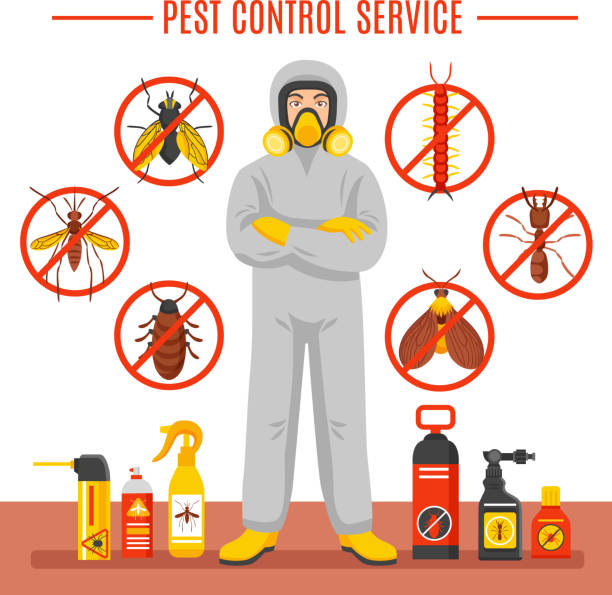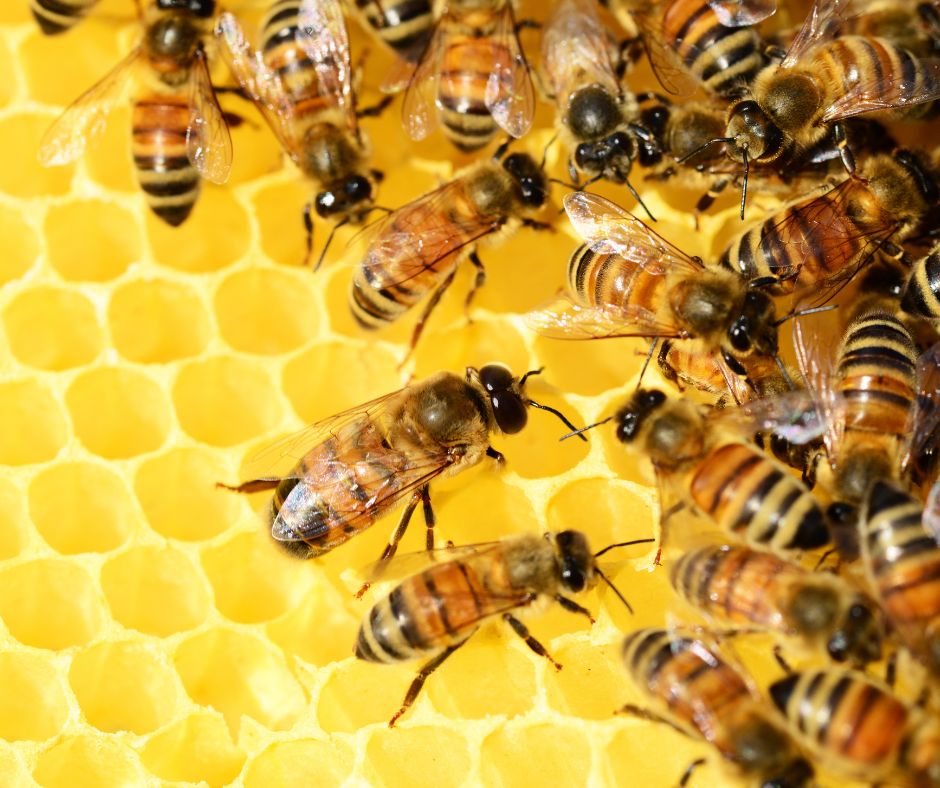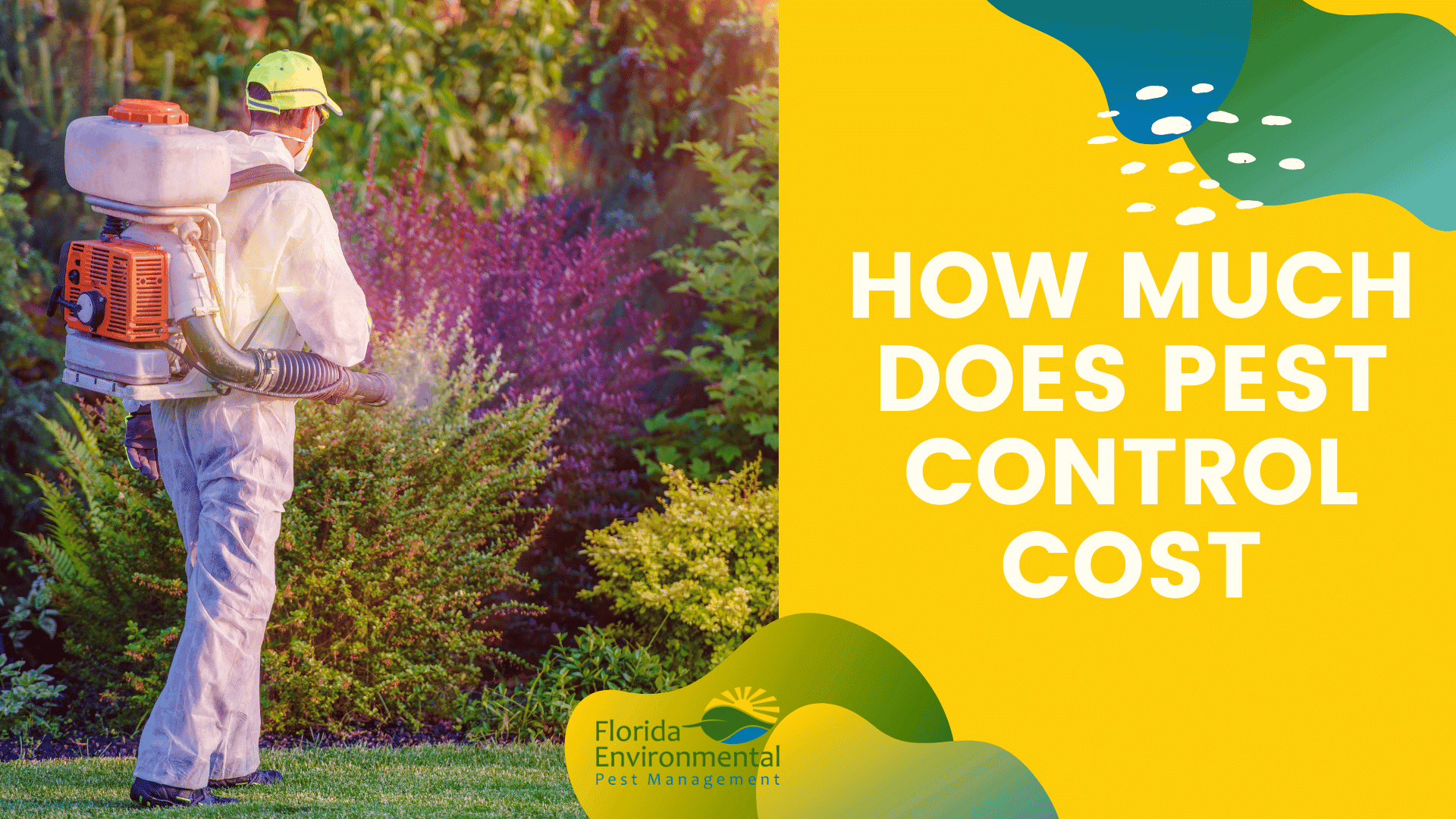Uncover the Relevance of Parasite Control in Maintaining a Healthy And Balanced Environment and Treatment Techniques

The Role of Pests in Ecosystems
Insects, commonly seen only as hassles, play a multifaceted duty in communities that is vital for maintaining environmental equilibrium. They add considerably to various environmental processes, consisting of pollination, nutrient biking, and insect control. Numerous insect varieties, such as bees and butterflies, are crucial pollinators for a broad range of plants, which in turn supports biodiversity and food manufacturing.
Furthermore, pests act as victim for numerous killers, developing an important web link in food webs. This connection makes sure the survival of different varieties and assists manage populaces within environments (Termite treatment Port Charlotte). Decomposer bugs, such as certain beetles and fungis, are important in damaging down natural issue, therefore improving soil and promoting nutrient recycling.
Alternatively, while pests can be beneficial, their overpopulation or invasion right into non-native atmospheres may interrupt these eco-friendly features. This intricacy emphasizes the importance of understanding pest characteristics, as effective pest monitoring strategies must consider both their ecological roles and potential influence on human activities. Balancing pest presence while minimizing injury is crucial for maintaining the stability of ecological communities and making certain agricultural efficiency.
Health Threats Connected With Pests
The visibility of parasites in different environments extends past their environmental functions, as they also pose substantial health and wellness risks to human beings and pets. Many pests, consisting of pests, rodents, and parasites, are service providers of illness that can have significant wellness effects. For example, rats are recognized to send hantavirus and leptospirosis, both of which can bring about serious respiratory and renal issues, specifically.
Insects such as ticks and insects are notorious for spreading vector-borne diseases like jungle fever, dengue fever, and Lyme disease. These ailments can lead to high morbidity and mortality prices, especially in at risk populaces. Furthermore, pests like insects and roaches can worsen allergic reactions and asthma, contributing to respiratory troubles in individuals, especially those with pre-existing conditions.
In addition, the visibility of pests can result in psychological stress and anxiety and discomfort, influencing total wellness. Contamination of food and surfaces by pest droppings and continues to be can bring about foodborne health problems, highlighting the value of preserving hygienic conditions. Consequently, recognizing the health and wellness risks related to bugs is important in identifying the necessity of reliable parasite monitoring techniques to protect animal and human health and wellness.

Benefits of Reliable Insect Control
Efficient insect control is necessary for keeping a healthy and balanced and secure environment, as it regularly alleviates their website the countless risks connected with bug infestations. Among the main advantages of effective insect monitoring is the decrease of carcinogen. Bugs such as rodents, mosquitoes, check my site and roaches are vectors for diseases that can influence both human beings and pets. By managing these populaces, the chance of disease transmission is substantially lowered.
Furthermore, efficient pest control safeguards property and structures from damage. Many pests, like termites and woodworker ants, can cause extensive architectural damage that may need costly repairs. By proactively managing these house owners, invasions and companies can shield their financial investments.
One more considerable advantage is the enhancement of overall top quality of life. A pest-free atmosphere adds to mental well-being and lowers stress and anxiety related to infestations. In addition, effective parasite control cultivates a more secure atmosphere for pet dogs and kids, making sure that homes stay sanctuaries without disease-causing microorganisms and harmful chemicals.
Usual Bug Control Methods

In the realm of pest administration, various techniques are used to fight infestations properly. These strategies can be generally classified into 3 primary approaches: social, mechanical, and chemical controls.
Cultural control entails changing practices to lower insect facility, reproduction, and survival. This might include plant rotation, appropriate sanitation, and habitat adjustment, which collectively develop an atmosphere much less for pest spreading.
Mechanical control utilizes physical approaches to eliminate insects (Termite treatment Port Charlotte). Methods such as catches, vacuums, and barriers are typically made use site web of to straight remove bugs from a location. This approach is especially reliable for taking care of rodents and pests without the use of hazardous chemicals
Chemical control involves the application of pesticides to take care of pests. These substances can be classified right into pesticides, herbicides, and fungicides, each targeting specific kinds of bugs. It is critical to make use of these chemicals carefully, sticking to security guidelines and regulations to decrease possible injury to non-target types and the atmosphere.
Each pest control technique has its benefits and restrictions, and frequently, an integrated approach incorporating numerous approaches produces the very best results in keeping a pest-free setting.
Sustainable Insect Management Practices
Lasting parasite management methods include a variety of techniques designed to decrease ecological effect while efficiently regulating parasite populaces. These methods focus on making use of ecologically friendly methods over chemical pesticides, therefore minimizing the danger of injury to non-target types, including beneficial insects, wild animals, and people.
Integrated Parasite Monitoring (IPM) is a keystone of sustainable practices, incorporating organic, cultural, mechanical, and chemical methods to handle parasites. As an example, organic control involves introducing all-natural predators or parasites to subdue pest populations. Cultural methods, such as plant rotation and polyculture, interrupt pest life process and enhance ecosystem resilience.
Mechanical approaches, such as catches or barriers, can effectively stop insect accessibility without chemical intervention. In addition, maintaining healthy and balanced environments via proper soil management, plant wellness, and biodiversity can normally alleviate insect issues.
Education and awareness are important elements, encouraging areas and individuals to acknowledge bug threats early and implement safety nets. Termite treatment Port Charlotte. By cultivating an alternative strategy that balances insect control with environmental honesty, lasting parasite management methods not only secure plants and frameworks however likewise add to a healthier atmosphere for future generations
Final Thought

Understanding the health risks linked with bugs is important in recognizing the necessity of effective bug monitoring methods to secure animal and human health and wellness.
Efficient pest control is important for keeping a safe and healthy setting, as it constantly reduces the many threats connected with bug infestations.Integrated Parasite Management (IPM) is a keystone of sustainable techniques, integrating organic, cultural, mechanical, and chemical techniques to take care of insects. By recognizing the role of bugs, recognizing connected wellness dangers, and using diverse therapy techniques, a sustainable technique to pest management can be accomplished. Integrated Pest Administration (IPM) stresses a holistic method that mitigates injury to advantageous microorganisms while efficiently regulating pest populations.